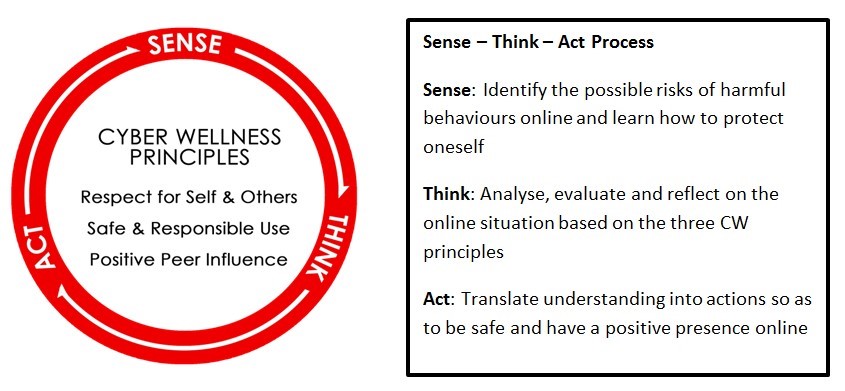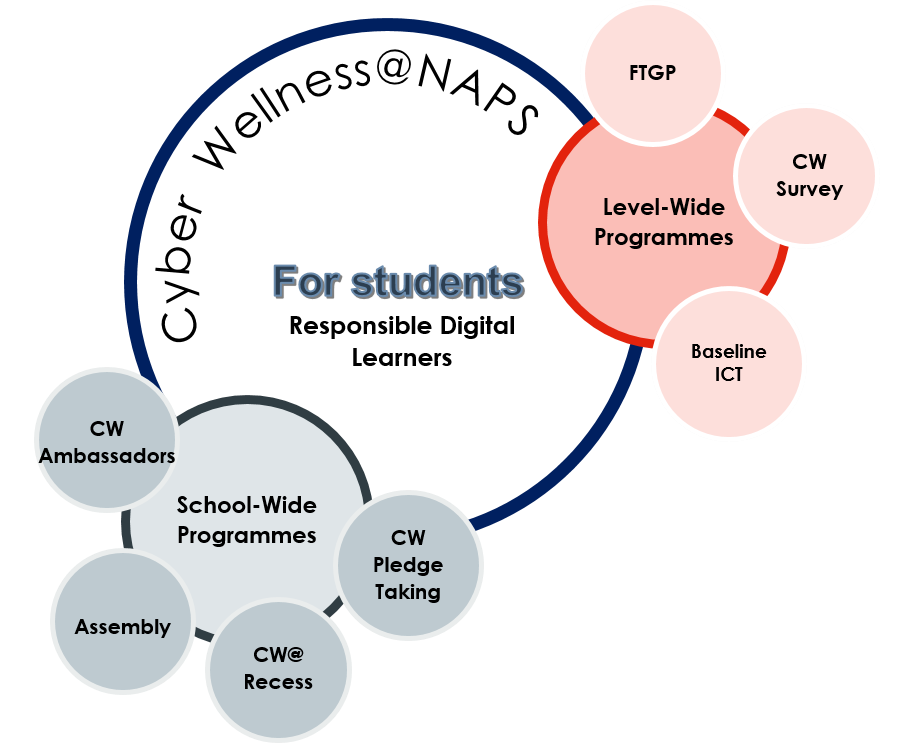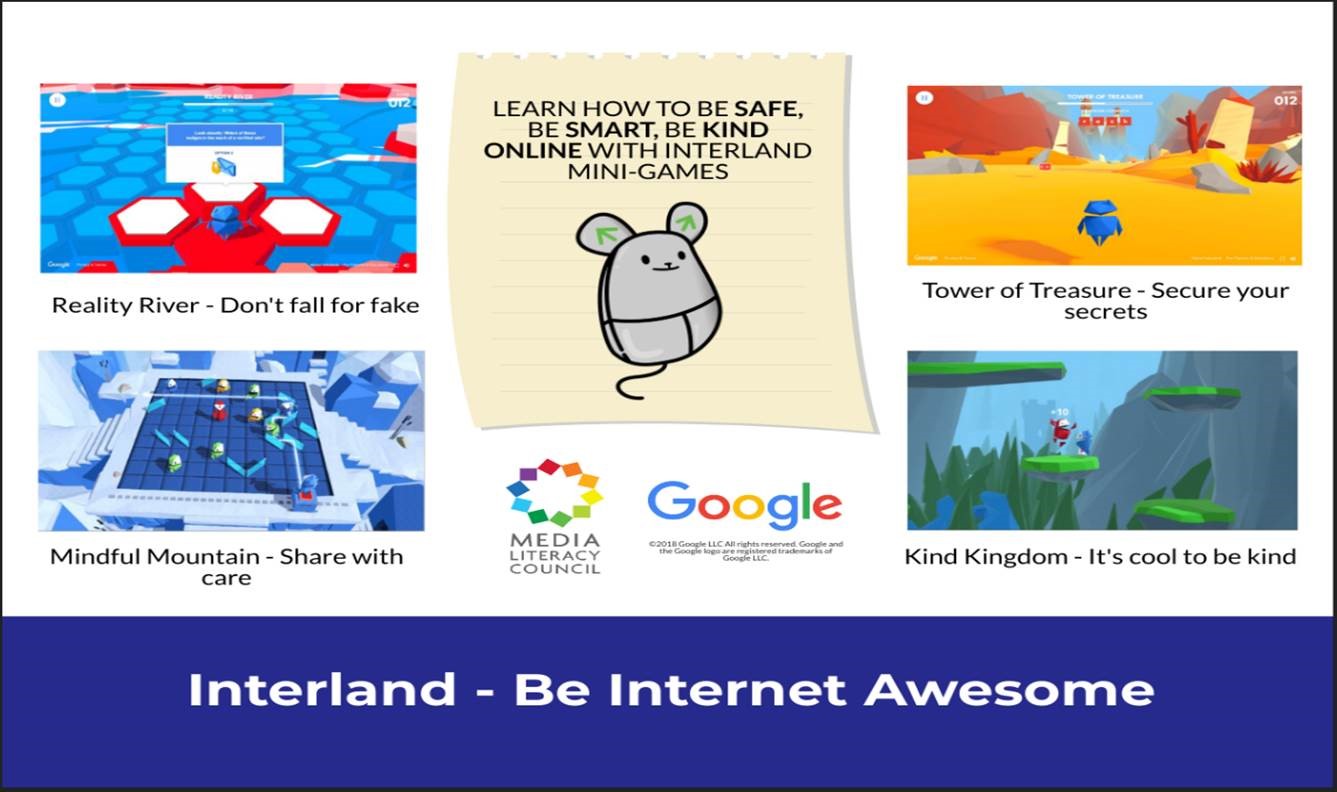Cyberwellness
Aim
The aim of the Cyber Wellness programme is to develop every Ngee Ann student into discerning and responsible ICT users who are able to protect themselves and be responsible for their well-being in the cyber world.
The school adopts MOE’s Cyber Wellness Framework in education our students on Cyber Wellness. This framework focuses on three key processes; Sense, Think and Act.

In order for the students to ‘sense’ and ‘think’, they are provided opportunities to analyze, evaluate and reflect on Cyber Wellness issues. Different platforms are provided to allow students to translate their understanding into actions that will keep them safe while being online. These platforms aim to let students take on the role as advocates to share the messages of Cyber Wellness with their peers, family and public.

NAPS Approach to Cyber Wellness programme for students
Resources for Students

Interland is a free web-based game consists of 4 mini-games that allows players to put fundamental lessons of digital safety into practice. The learning outcomes include:
| S/N | Mini-Game | Learning Objectives |
|---|---|---|
| 1 | Reality River | - Understanding not everything is true online - Recognising the signs of a scam - Understanding phishing and how to report it |
| 2 | Mindful Mountain | - Being mindful of what is shared and with whomUnderstanding the consequences of sharing - Understanding that some information is extra sensitive |
| 3 | Kind Kingdom | - Understanding that the Internet amplifies kindness and negativity - Not tolerating bullying and speaking up - Blocking and reporting mean-spirited behaviour |
| 4 | Tower of Treasure | - Taking responsibility to protect one’s information - Knowing how to make a strong and memorable password |
It should take approximately 15 to 20 minutes per game or a total of 1 to 1.5 hours for students to complete the 4 mini-games, and the link to Interland is: g.co/interland
7 Things Every Parent Can Do to Keep Kids Cyber-Safe: A tech dads special


